- Home
- Peter F. Hamilton
The Void Trilogy 3-Book Bundle Page 2
The Void Trilogy 3-Book Bundle Read online
Page 2
“No.”
“More ruins.” LionWalker took a comfortable gulp of whiskey.
“I see.”
“No, you don’t. They were practically fossilized, nothing more than dust strata, over three quarters of a million years old. And from what I’ve picked up, looking at the early records the Raiel deign to make available, the observation has been going on a lot longer than that. A million years pecking away at a problem. Now, that’s dedication for you. We’d not be able to manage that, far too petty.”
“Speak for yourself.”
“Ah, I might have known; a believer.”
“In what?”
“Humanity.”
“That must be common among the staff here, surely.” Inigo was wondering how to disengage himself. The director was starting to irritate him.
“Damn right, laddy. One of the few things that keeps me all cheered up out here all by my wee lonesome. Och … here we go.” LionWalker tipped his head back and stared out across the dome, where the low layer of hazy light faded away. Overhead the crystal was completely transparent, revealing the vast antagonistic nebulae that washed across the sky. Hundreds of stars shone through the glowing veil, spikes of light so intense that they burned toward violet and into indigo. They multiplied toward the horizon as the planet spun slowly to face the Wall, the vast barrier of massive stars that formed the outermost skin of the galactic core.
“We can’t see the Void from here, can we?” Inigo asked. He knew it was a stupid question; the Void was obscured on the other side of the Wall, right at the very heart of the galaxy. Centuries earlier, before anyone had ventured out of Earth’s solar system, human astronomers had thought it was a massive black hole. They’d even detected X-ray emissions from the vast loop of superheated particles spinning around the event horizon, which helped confirm their theories. It was not until Wilson Kime had captained the Commonwealth Navy ship Endeavor in the first successful human circumnavigation of the galaxy in 2560 that the truth was discovered. There was indeed an impenetrable event horizon at the core, but it did not surround anything as natural and mundane as a superdense mass of dead stars. The Void was an artificial boundary guarding a legacy billions of years old. The Raiel claimed there was an entire universe inside, one that had been fashioned by a race that had lived during the dawn of the galaxy, and that they had retreated into it to consummate their journey to the absolute pinnacle of evolution. In the wake of their departure, the Void was now slowly consuming the remaining stars in the galaxy. In that it was no different from the natural black holes found anchoring the center of many galaxies, but while they employed gravity and entropy to pull in mass, the Void actively devoured stars. It was a process that was accelerating slowly yet inexorably. Unless it was stopped, the galaxy would die young, maybe three or four billion years before its allotted time, far enough in the future that Sol would be a cold ember and the human race not even a memory. But the Raiel cared. This was the galaxy they had been born in, and they believed it should be given the chance to live its full life.
LionWalker gave a little snort of amusement. “No, of course you can’t see it. Don’t panic, laddy; there’s no visible nightmare in our skies. DF7 is rising, that’s all.” He pointed.
Inigo waited, and after a minute an azure crescent drifted up over the horizon. It was half the size of Earth’s moon, with a strangely regular black mottling. He let out a soft breath of admiration.
There were fifteen of the planet-size machines orbiting within the Centurion Station star system: nests of concentric lattice spheres, each one possessing a different mass property and quantum field intersection, with the outer shell roughly the same diameter as Saturn. They were a Raiel-built “defense system” in case a Void devourment phase broke through the Wall. No one had ever seen them in action, not even the Jadradesh.
“Okay. That is impressive,” Inigo said. The DFs were in the files, of course, but a machine on that scale and head-on real was awesome.
“You’ll fit in,” LionWalker declared happily. He slapped a hand on Inigo’s shoulder. “Go find yourself a drink. I made sure we had the very best culinary programs for alcohol synthesis. You can take that as a challenge.” He moved on to the next arrival.
Keeping one eye on DF7, Inigo made his way to the bar. LionWalker had not been kidding; the drinks were top quality, even the vodka that fountained up through the mermaid ice sculpture.
Inigo stayed at the party longer than he had expected to. There was something about being thrown together with a bunch of like-minded devoted people that instinctively triggered his normally dormant social traits. By the time he finally got back to his apartment, his biononics had been deflecting alcohol infiltration of his neurons for several hours. Even so, he permitted some to percolate through his artificial defenses, enough to generate a mild inebriation and all the associated merits. He was going to have to live with these people for another year. No advantage in appearing aloof.
As he crawled into bed, he ordered a complete desaturation. That was one superb benefit of biononics: no hangover.
And so Inigo dreamed his first dream at Centurion Station. It wasn’t his.
Aaron spent the whole day mingling with the faithful of the Living Dream movement in Golden Park’s vast plaza, eavesdropping on their restless talk about the succession, drinking water from the mobile catering stalls, trying to find some shade from the searing sun as the heat and coastal humidity rose relentlessly. He thought he remembered arriving at daybreak; certainly the expanse of marble cobbles had been virtually empty as he had walked across it. The tips of the splendid white metal pillars surrounding the area had been crowned with rose-gold light as the local star rose above the horizon. He had smiled appreciatively at the outline of the replica city, matching the topography surrounding Golden Park with the dreams he had gathered from the gaiafield over the last … well, for quite some time. Golden Park had started to fill up rapidly after that, with the faithful arriving from the other districts of Makkathran2 across the canal bridges, ferried in by a fleet of gondolas. By midday there must have been close to a hundred thousand of them. All faced the Orchard Palace, which sprawled possessively like a huddle of high dunes over the Anemone district on the other side of the Outer Circle Canal. There they waited with badly disguised impatience for the Cleric Council to come to a decision—any sort of decision. The Council had been in conclave for three days now. How long could they possibly take to elect a new Conservator?
At one point that morning he had edged his way right up to the Outer Circle Canal, close to the central wire-and-wood bridge that arched over to Anemone. It was closed, of course, as were the other two bridges in that section. Although in ordinary times anyone from the ultradevout to curious tourist could cross over and wander around the vast Orchard Palace, this day it had been sealed off by fit-looking junior Clerics who had undergone a lot of muscle enrichment. Camped out to one side of the temporarily forbidden bridge were hundreds of journalists from all over the Greater Commonwealth, most of them outraged by the stubborn refusal of Living Dream to leak information their way. They were easily identifiable by their chic modern clothes and by faces that obviously were maintained at peak gloss by a membrane of cosmetic scales. Not even Advancer DNA produced complexions that good.
Behind them the bulk of the crowd buzzed about, discussing their favorite candidates. If Aaron was judging the mood correctly, just about ninety-five percent of them were rooting for Ethan. They wanted him because they were done with waiting, with patience, with the status quo preached by all the other lackluster caretakers since the Dreamer himself, Inigo, had slipped away from public life. They wanted someone who would bring their whole movement to that blissful moment of fulfillment they had been promised from the moment they had tasted Inigo’s first dream.
Some time in the afternoon Aaron realized that the woman was watching him. Instinct smoothly clicked his awareness to her location—which was an interesting trait to know he had. From then on he was
conscious of her: how she casually wandered in order to keep an easy distance between them, how she never had her eyes in his direction when he glanced at her. She wore a simple short-sleeved rusty-orange top and knee-length blue trousers of some modern fabric. A little different from the faithful—who tended to wear the more primitive rustic clothes of wool, cotton, and leather favored by Makkathran’s citizens, but not contemporary enough to be obvious. Nor did her looks make her stand out, though she had a flattish face and a cute button nose; some of the time her slim copper shades were across her eyes, but often she had them perched in her short dark hair. Her age was unknowable; her appearance was locked into the biological mid-twenties like that of everyone in the Greater Commonwealth. He was certain, with no tangible proof, that she was well past her first couple of centuries.
After they had played the orbiting-satellites game for forty minutes, he walked over, keeping his smile pleasant. There were no pings coming off her that his macrocellular clusters could detect, no active links to the unisphere or any active sensor activity. Electronically, she was as stone age as the city.
“Hello,” he said.
She pushed her shades up with the tip of a finger and gave him a playful grin. “Hello yourself. So what brings you here?”
“This is a historic event.”
“Quite.”
“Do I know you?” His instinct had been right, he saw; she was nothing like the placid faithful shuffling around them. Her body language was all wrong; she could keep tight control of herself, enough to fool anyone without his training—training?—but he could sense the attitude coiled up inside.
“Should you know me?”
He hesitated. There was something familiar about her face, something he should know about her. He could not think what for the simple reason that he did not have any memories to pull up and examine. Not of anything, now that he thought about it. He didn’t seem to have had a life prior to this day. He knew that was all wrong, yet that did not bother him, either. “I don’t recall.”
“How curious. What’s your name?”
“Aaron.”
Her laughter surprised him.
“What?” he asked.
“Number one, eh? How lovely.”
Aaron’s answering grin was forced. “I don’t understand.”
“If you wanted to list terrestrial animals, where would you start?”
“Now you’ve really lost me.”
“You’d start with the aardvark. Double A; it’s the top of the list.”
“Oh,” he mumbled. “Yeah, I get it.”
“Aaron.” She chuckled. “Someone had a sense of humor when they sent you here.”
“Nobody sent me.”
“Really?” She arched a thick eyebrow. “So you just sort of found yourself at this historic event, did you?”
“That’s about it, yes.”
She dropped the copper band back down over her eyes and shook her head in mock dismay. “There are several of us here, you know. I don’t believe that’s an accident, do you?”
“Us?”
Her hand gestured around at the crowd. “You don’t count yourself as one of these sheep, do you? A believer? Someone who thinks they can find a life at the end of these dreams Inigo so generously gifted to the Commonwealth?”
“I suppose not, no.”
“There’s a lot of people watching what happens here. It’s important, after all, and not just for the Greater Commonwealth. If there’s a Pilgrimage into the Void, some species claim it could trigger a devourment phase which will bring about the end of the galaxy. Would you want that to happen, Aaron?”
She was giving him a very intent stare. “That would be a bad thing,” he temporized. “Obviously.” In truth he had no opinion. It was not something he thought about.
“Obvious to some, an opportunity to others.”
“If you say so.”
“I do.” She licked her lips with mischievous amusement. “So, are you going to try for my unisphere code? Ask me out for a drink?”
“Not today.”
She pouted fulsomely. “How about unconditional sex, then, any way you like it?”
“I’ll bank that one, too, thanks.” He laughed.
“You do that.” Her shoulders moved up in a slight shrug. “Goodbye, Aaron.”
“Wait,” he said as she turned away. “What’s your name?”
“You don’t want to know me,” she called out. “I’m bad news.”
“Goodbye, Bad News.”
There was a genuine smile on her face as she looked back at him. A finger wagged. “That’s what I remember best,” she said, and was gone.
He smiled at the rear of her rapidly departing head. She vanished quickly enough amid the throng; after a minute he couldn’t even spot her. He had seen her originally because she had wanted him to, he realized.
Us, she’d said. There are a lot like us here. That didn’t make a lot of sense. But then she’d stirred up a lot of questions. Why am I here? he wondered. There was no solid answer in his mind other than it was the right place for him to be; he wanted to see who was elected. And the memories. Why don’t I have any memories of anything else? It ought to bother him, he knew—memories were the fundamental core of human identity—yet even that emotion was lacking. Strange. Humans were emotionally complex entities, yet he didn’t appear to be. But he could live with that; something deep inside him was sure he would solve the mystery of himself eventually. There was no hurry.
Toward late afternoon the crowd began to thin out as the announcement remained obstinately unforthcoming. Aaron could see disappointment on the faces moving past him, a sentiment echoed by the whispers of emotion within the local gaiafield. He opened his mind to the surrounding thoughts, allowing them to wash in through the gateway that the gaiamotes had germinated inside his cerebellum. It was like walking through a fine mist of specters, bestowing the plaza with flickers of unreal color, images of times long gone yet remembered fondly; sounds were muffled, as if experienced through fog.
His recollection of when he had joined the gaiafield community was as hazy as the rest of his time before this day: it didn’t seem like the kind of thing he would do—too whimsical. Gaiafield was for adolescents who considered the multisharing of dreams and emotions to be deep and profound or fanatics like Living Dream. But he was proficient enough with the concept of voluntarily shared thoughts and memories to grasp a coherent sensation from his exposure to the raw minds in the plaza. Of course, if it could be done anywhere, it would be here in Makkathran2, which Living Dream had made the capital of the Greater Commonwealth’s gaiafield, with all the contradictions that entailed. To the faithful, the gaiafield was almost identical to the genuine telepathy the citizens of the real Makkathran possessed.
Aaron felt their sorrow firsthand as the day began to wind down, with several stronger undercurrents of anger directed at the Cleric Council. In a society where one shared thoughts and feelings, so the consensus went, an election really should not be so difficult. He also perceived their subliminal wish slithering through the gaiafield: Pilgrimage, the one true hope of the whole movement.
Despite the regret gusting around him, Aaron stayed where he was. He didn’t have anything else to do. The sun had fallen almost to the horizon when there was some movement on the broad balcony along the front of the Orchard Palace. All across the plaza, people suddenly smiled and pointed. There was a gentle yet urgent movement toward the Outer Circle Canal. Security force fields along the side of the water expanded, cushioning those shoved up against the railings as the pressure of bodies increased behind them. Various news company camera pods zoomed through the air like glitter-black festival balloons, adding to the thrill. Within seconds the mood in the plaza had lifted to fiery anticipation; the gaiafield suddenly crackled with excitement, its intensity rising until Aaron had to withdraw slightly to avoid being deluged by the clashing storms of color and ethereal shouts.
The Cleric Council marched solemnly out ont
o the balcony, fifteen figures wearing full-length scarlet-and-black robes. In their center was a lone figure whose robe was a dazzling white edged in gold, the hood pulled forward to obscure the face inside. The dying sun glowed against the soft cloth, creating a nimbus around him. A huge cheer went up from the crowd. Camera pods edged in as close to the balcony as their operators dared; palace force fields rippled in warning, keeping them back. As one, the Cleric Council reached out into the gaiafield with their minds; unisphere access followed swiftly, making the grand announcement available across the Greater Commonwealth to followers and nullifidians alike.
In the middle of the balcony, the white-robed figure reached up and slowly pushed back the hood. Ethan smiled beatifically out across the city and its adulating faithful. There was a kindness about his thin solemn face that suggested he was attuned to all their fears; he sympathized and understood. Everyone could see the dark bags under his eyes that could come only from the burden of accepting such a terribly high office, of carrying the expectations of every Dreamer. As his face was exposed to the rich sunlight, the cheering down in the plaza increased. Now the other members of the Cleric Council turned toward the new Cleric Conservator and applauded contentedly.
Without conscious intervention, the ancillary thought routines operating inside Aaron’s macrocellular clusters animated his ocular zoom. He scanned along the faces of the Cleric Council, designating each image with an integral code as the ancillary routines slotted them into macrocellular storage lacunae ready for instant recall. Later he would study them for any betraying emotion, an indicator of how they had argued and voted.
He had not known he had the zoom function, which piqued his curiosity. At his request the secondary thought routines ran a systems check through the macrocellular clusters enriching his nervous system. Exoimages and mental icons unfolded from neutral status to standby in his peripheral vision, lines of shifting iridescence bracketing his natural sight. The exoimages were all default symbols generated by his u-shadow, the personal interface with the unisphere that instantly would connect him to any of its massive data, communication, entertainment, and commerce functions. All standard stuff.

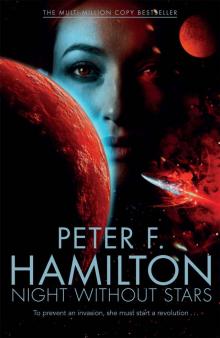 A Night Without Stars
A Night Without Stars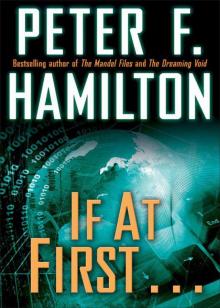 If at First . . .
If at First . . .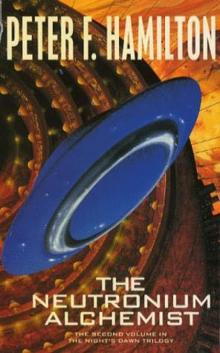 The Neutronium Alchemist
The Neutronium Alchemist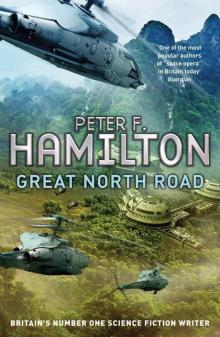 Great North Road
Great North Road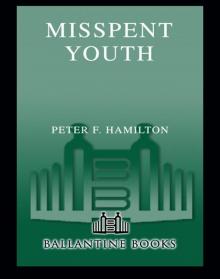 Misspent Youth
Misspent Youth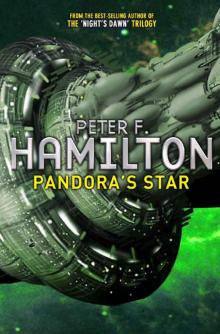 Pandora's Star
Pandora's Star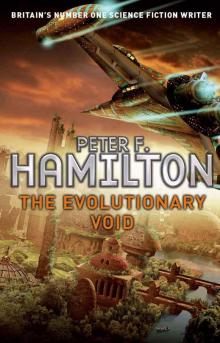 The Evolutionary Void
The Evolutionary Void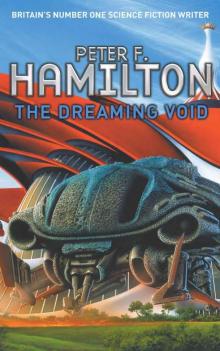 The Dreaming Void
The Dreaming Void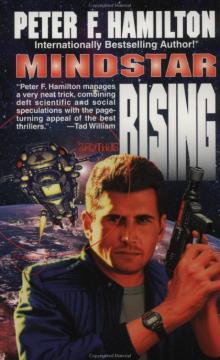 Mindstar Rising
Mindstar Rising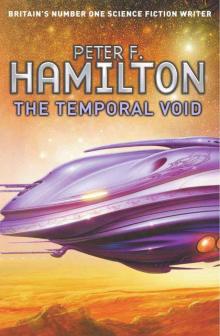 The Temporal Void
The Temporal Void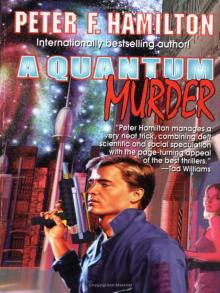 A Quantum Murder
A Quantum Murder The Hunting of the Princes
The Hunting of the Princes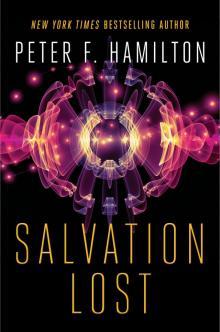 Salvation Lost
Salvation Lost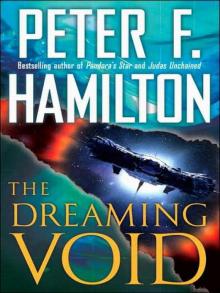 The Dreaming
The Dreaming Salvation
Salvation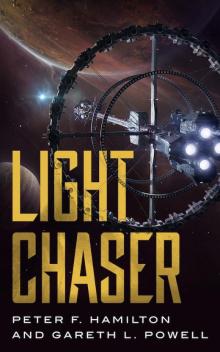 Light Chaser
Light Chaser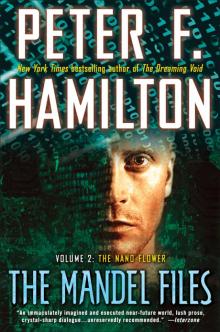 The Mandel Files, Volume 2: The Nano Flower
The Mandel Files, Volume 2: The Nano Flower![The Saints of Salvation [British Ed.] Read online](http://i1.bookreadfree.com/22/the_saints_of_salvation_british_ed__preview.jpg) The Saints of Salvation [British Ed.]
The Saints of Salvation [British Ed.]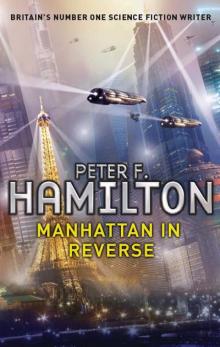 Manhattan in Reverse
Manhattan in Reverse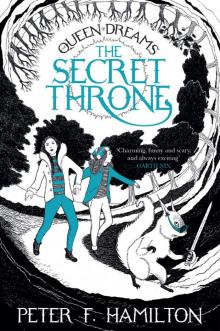 The Secret Throne
The Secret Throne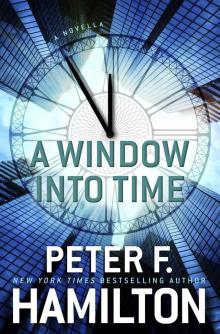 A Window Into Time
A Window Into Time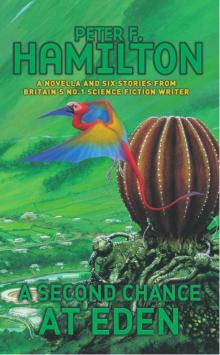 A Second Chance at Eden
A Second Chance at Eden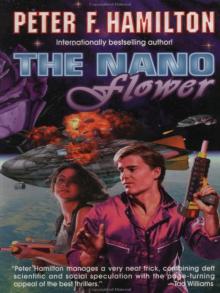 The Nano Flower
The Nano Flower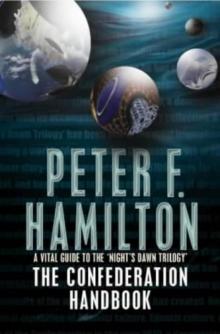 The Confederation Handbook
The Confederation Handbook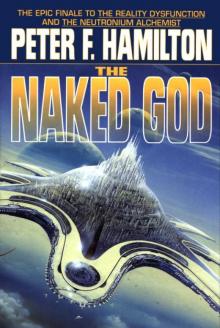 The Naked God
The Naked God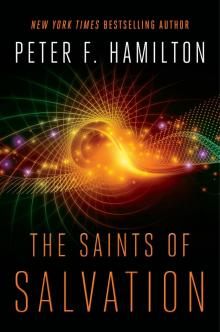 The Saints of Salvation
The Saints of Salvation The Void Trilogy 3-Book Bundle
The Void Trilogy 3-Book Bundle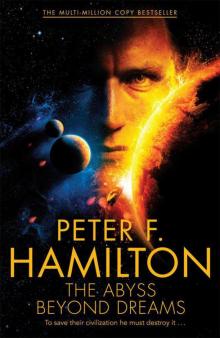 The Abyss Beyond Dreams
The Abyss Beyond Dreams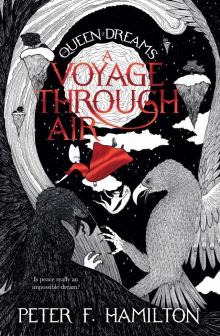 A Voyage Through Air
A Voyage Through Air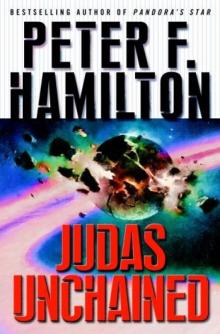 Judas Unchained
Judas Unchained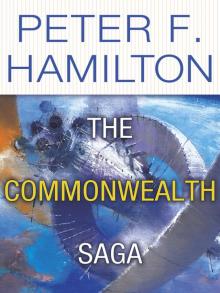 The Commonwealth Saga 2-Book Bundle
The Commonwealth Saga 2-Book Bundle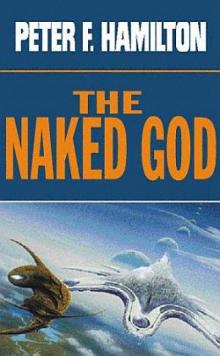 The Naked God - Flight nd-5
The Naked God - Flight nd-5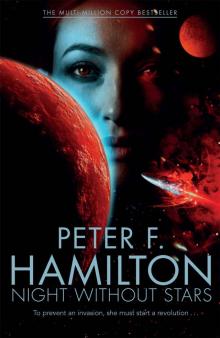 Night Without Stars (Chronicle of the Fallers Book 2)
Night Without Stars (Chronicle of the Fallers Book 2)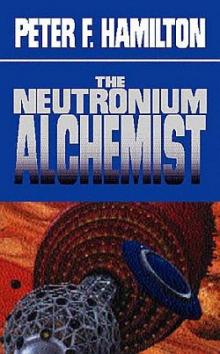 Neutronium Alchemist - Conflict nd-4
Neutronium Alchemist - Conflict nd-4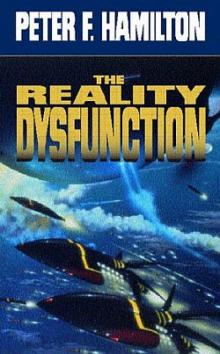 Reality Dysfunction - Expansion nd-2
Reality Dysfunction - Expansion nd-2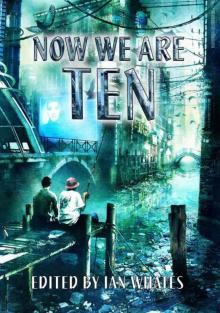 Now We Are Ten: Celebrating the First Ten Years of NewCon Press
Now We Are Ten: Celebrating the First Ten Years of NewCon Press Neutronium Alchemist - Consolidation nd-3
Neutronium Alchemist - Consolidation nd-3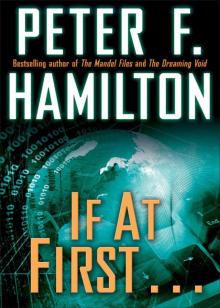 If at First . . . (Short Story)
If at First . . . (Short Story)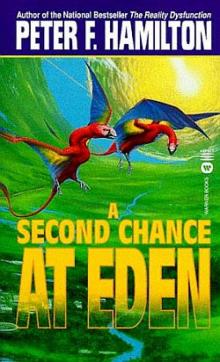 A Second Chance at Eden nd-7
A Second Chance at Eden nd-7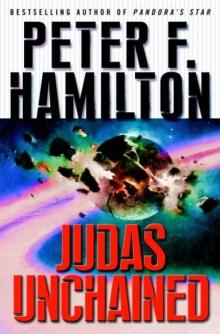 Judas Unchained cs-2
Judas Unchained cs-2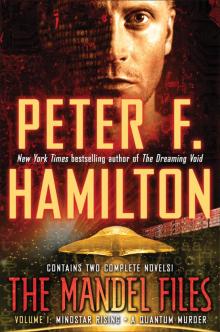 The Mandel Files, Volume 1
The Mandel Files, Volume 1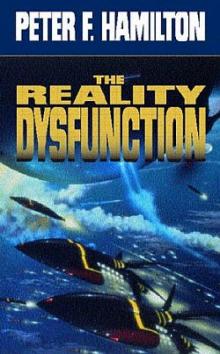 Reality Dysfunction — Emergence nd-1
Reality Dysfunction — Emergence nd-1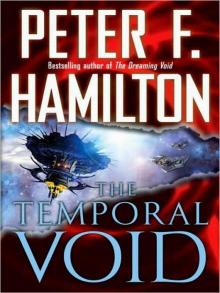 The Temporal Void (ARC)
The Temporal Void (ARC)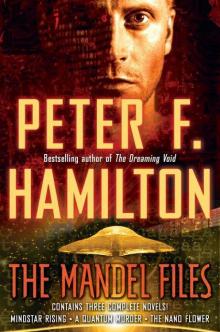 The Mandel Files
The Mandel Files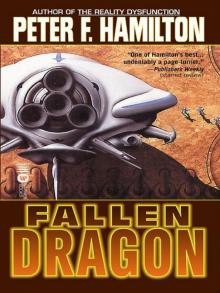 Fallen Fragon
Fallen Fragon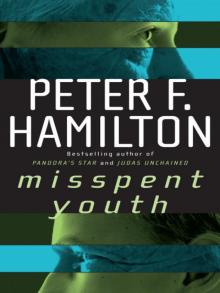 Misspent Youth (commonwealth saga)
Misspent Youth (commonwealth saga)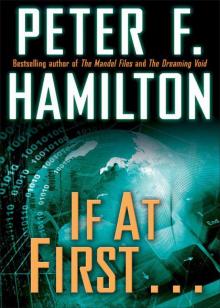 If at First...
If at First...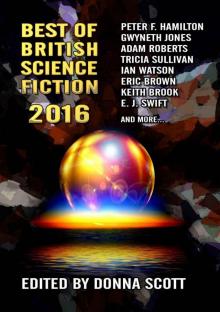 Best of British Science Fiction 2016
Best of British Science Fiction 2016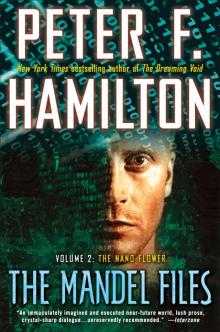 The Mandel Files, Volume 2
The Mandel Files, Volume 2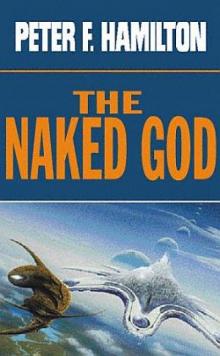 The Naked God - Faith nd-6
The Naked God - Faith nd-6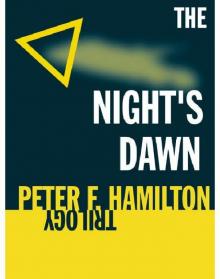 The Night's Dawn Trilogy
The Night's Dawn Trilogy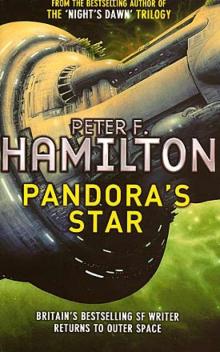 Pandora's Star cs-2
Pandora's Star cs-2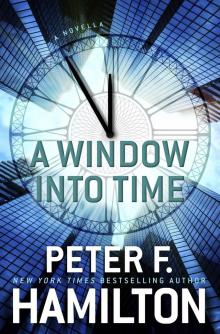 A Window into Time (Novella)
A Window into Time (Novella)